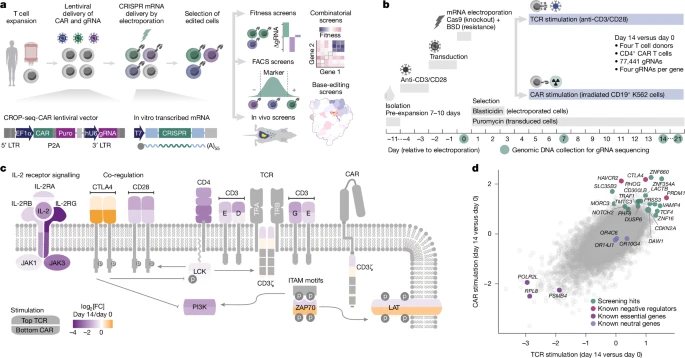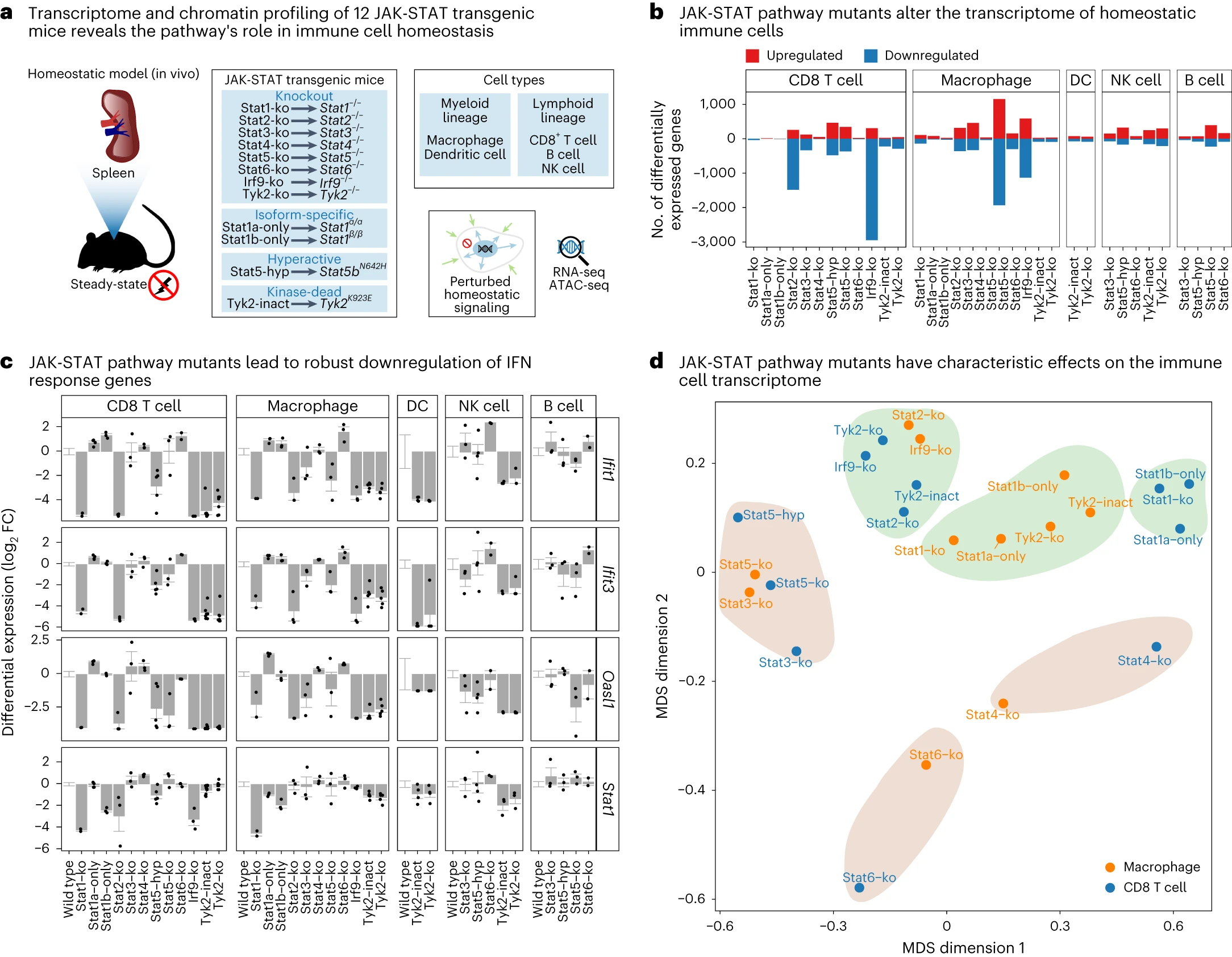Immune cell engineering and synthetic cell biology

CAR T cells have shown dramatic efficacy for blood cancers and may spearhead a broad shift toward personalized, cell-based therapies. We use high-throughput CRISPR screening and single-cell sequencing technology to design synthetic immune cells.
Cell-based therapies have huge potential to improve treatment options for cancer and a range of other diseases. Perhaps most excitingly, it is now possible to engineer artificial molecular programs into human cells and to use these purpose-built cells as therapeutic agents. The future perspectives seem endless, ranging from glucose-sensing and insulin-producing cell implants to cellular sentinels of relapsing tumors and reconstruction of damaged organs using the tools of regenerative medicine.
While some of the most promising applications may still require decades of preparatory work, the feasibility of using engineered cells for therapy has been conclusively validated by the recent clinical successes of CAR T cell therapy for cancer treatment. Therefore, CAR T cells not only constitute a powerful therapeutic agent, but also provide a testbed for concepts and methods that will help create rationally engineered cell-based therapies for a broad range of disease indications.
We have developed a series of tools that allow us to engineer immune cells in high throughput, following the lab’s READ-LEARN-WRITE approach: Observing cell states by single-cell sequencing (READ), modeling regulatory mechanisms with deep learning (LEARN), and building artificial biological programs into cells by genome engineering (WRITE). We expect this approach to become broadly useful for immune cell engineering and synthetic biology inside human cells.
Publications

Systematic discovery of CRISPR-boosted CAR T cell immunotherapies
Datlinger P#*, Pankevich EV#, Arnold CD#, Pranckevicius N, Lin J, Romanovskaia D, Schaefer M, Piras F, Orts AC, Nemc A, Biesaga PN, Chan M, Neuwirth T, Artemov AV, Wentao Li, Ladstätter S, Krausgruber T. & Bock C*
Nature (2025). DOI: 10.1038/s41586-025-09507-9
Donwload PDF
Read online (without subscription)
Project website

JAK-STAT signaling maintains homeostasis in T cells and macrophages
Fortelny N, Farlik M#*, Fife V, Gorki AD, Lassnig C, Maurer B, Meissl K, Dolezal M, Boccuni L, Ravi Sundar Jose Geetha A, Akagha MJ, Karjalainen A, Shoebridge S, Farhat A, Mann U, Jain R, Tikoo S, Zila N, Esser-Skala W, Krausgruber T, Sitnik K, Penz T, Hladik A, Suske T, Zahalka S, Senekowitsch M, Barreca D, Halbritter F, Macho-Maschler S, Weninger W, Neubauer HA, Moriggl R, Knapp S, Sexl V, Strobl B, Decker T, Müller M, Bock C*
Nature Immunology 25 (2024). DOI: 10.1038/s41590-024-01804-1
Donwload PDF
Read online (without subscription)

Ultra-high-throughput single-cell RNA sequencing and perturbation screening with combinatorial fluidic indexing
Datlinger P, Rendeiro AF, Boenke T, Senekowitsch M, Krausgruber T, Barreca D, Bock C
Nature Methods 18, 635-642 (2021). DOI: 10.1038/s41592-021-01153-z
Donwload PDF
Read online (without subscription)

Pooled CRISPR screening with single-cell transcriptome readout
Datlinger P, Schmidl C, Rendeiro A, Krausgruber T, Traxler P, Klughammer J, Schuster L, Kuchler A, Alpar D, Bock C
Nature Methods 14, 297-301 (2017). DOI: 10.1038/nmeth.4177
Donwload PDF
Read online (without subscription)
* shared first or shared senior authorship